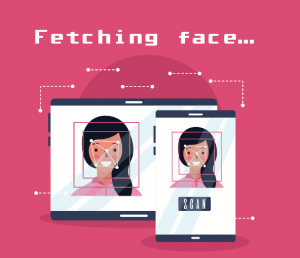Breaking Free From Big Tech: How One Woman is Building a More Ethical AI Future

The rapid advancement of artificial intelligence (AI) has ushered in a new era of technological innovation, but it has also exposed critical ethical concerns. Within the tech giants driving this AI revolution, a growing chorus of voices is raising alarm bells about the lack of diversity, transparency, and accountability in AI development. These concerns came to a head with the very public departures of several prominent AI ethicists from Google, including Dr. Alex Hanna.
Frustrated by the limitations and lack of action within a corporate setting, Hanna made the bold decision to leave her position on Google’s Ethical AI team. Her departure, documented in a candid Medium post, highlighted the deep-seated issues within Big Tech and its approach to responsible AI.

The Google Exodus: A Stand Against Systemic Issues
Hanna’s departure was not an isolated incident. It followed the controversial exits of two other leading figures in AI ethics: Timnit Gebru and Meg Mitchell. Gebru, co-lead of the Ethical AI team, was dismissed after co-authoring a paper that critically examined the ethical implications of large language models, including those developed by Google. Mitchell, who took over after Gebru’s departure, was also let go a few months later.
These high-profile exits sent shockwaves through the AI community, exposing a systemic problem within Google and the wider tech industry. Hanna, in her resignation letter, directly addressed the “whiteness problem” within tech, arguing that Google’s corporate culture was inherently biased and resistant to change.

DAIR: Pioneering a Community-Driven Approach to AI
Driven by a desire to create a more equitable and just AI landscape, Hanna joined forces with Gebru, who had founded the Distributed AI Research Institute (DAIR). This independent, non-profit organization is committed to challenging the status quo in AI research by adopting a community-focused approach.
DAIR operates remotely, with teams located across the globe, including Berlin and South Africa. This distributed structure reflects the organization’s commitment to inclusivity and global perspectives. Unlike traditional research institutions often beholden to corporate interests or academic pressures, DAIR prioritizes research that benefits marginalized communities and addresses real-world problems.
Redefining AI Research: Projects and Impact
DAIR’s research projects are as diverse as its team. One notable project, led by DAIR fellow Raesetje Sefala, uses satellite imagery and computer vision to study the impact of desegregation in post-apartheid South Africa. By mapping out low-income areas and analyzing neighborhood changes, Sefala’s work provides valuable insights into the long-lasting effects of apartheid and informs policy decisions aimed at social justice.
Another DAIR fellow, Milagros Miceli, is tackling the issue of power imbalances in the field of data labor. Her research sheds light on the exploitative practices within the data annotation industry, where workers, often located in the Global South, are paid meager wages to analyze and label the massive datasets that fuel AI algorithms.
These projects exemplify DAIR’s commitment to using AI research as a tool for social good. By prioritizing community needs and addressing real-world problems, DAIR is actively working to ensure that AI benefits everyone, not just a select few.

A Vision for the Future: Towards a More Equitable and Just AI
Hanna’s journey from Google to DAIR is a testament to her unwavering commitment to ethical AI. Her vision extends beyond simply identifying problems; it’s about dismantling the systems that perpetuate inequality and building a more just and equitable future for AI.
DAIR’s work is a crucial step in that direction. By challenging the traditional power structures within AI research, promoting diversity and inclusivity, and prioritizing community-driven projects, DAIR is laying the foundation for a more responsible and ethical AI landscape.
Conclusion: A Call to Action for Responsible AI
The story of Alex Hanna and the emergence of DAIR is a call to action for everyone involved in the development and deployment of AI. As AI continues to permeate every aspect of our lives, it is imperative that we prioritize ethical considerations and ensure that this powerful technology is used for the betterment of humanity.
We must move beyond the rhetoric of ethical AI and actively work to dismantle the systems of oppression that are embedded within the field. We must support organizations like DAIR that are challenging the status quo and working to create a more equitable and just AI future for all.
High-Trust External URLs:
- Distributed AI Research Institute (DAIR): https://www.dainow.org/
- The Algorithmic Justice League: https://www.ajlunited.org/
- Partnership on AI: https://www.partnershiponai.org/








